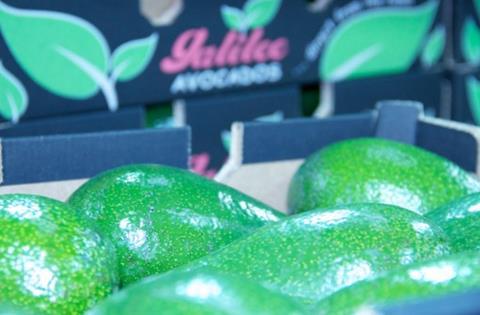Production of exotic fruits like avocados, mangoes and lychees in Israel has largely been unaffected by the war in Gaza or wider conflict
Compared with other horticultural crops, the ongoing war and wider conflict have had only a marginal impact on the production of sub-tropical or exotic crops in Israel.
Deciduous crops grown in the north, close to the border with Lebanon, and citrus and vegetable production in the areas surrounding Gaza, where growers have limited access to their orchards and fields, have badly suffered.
Harvesting and other activities needed to maintain the trees for future growing seasons have been significantly hampered. Even where access is allowed, a lack of manpower has been an issue.
By contrast, crops including avocados, mangoes and lychees are mainly produced in the climatically hotter regions of Israel, such as around the Sea of Galilee and in the Jordan Valley, more “peaceful” areas.
Galilee Export is one of the leading exporters of fruit and vegetables from Israel, with Galilee is the largest exporter of Israeli avocados with close to 52,000 tonnes exported abroad. Galilee has recently invested in Peru, controlling about 100ha of crop with 1,200 tonnes produced. This quantity is delivered to Galilee customers at a time when avocado exports from Israel are winding down.

This forthcoming lychee season – from mid-July to the end of August – looks promising, according to Galilee, both in fruit quality (large and deep red colour) and in quantities.
Galilee will export both by air and by sea, to the UK and other countries in western Europe, to South Africa and to Canada. Israel grows about 300ha of lychees, with Mauritius being the leading commercial variety, the medium-large fruit ripening between June and August with a small pip and a high sugar content.
Despite significant heat waves during the mango season, which are expected to reduce quantities harvested, yields are reportedly looking good, especially for the Shelly and Keitt varieties. However, with fruit from other origins, such as Spain, Brazil, Peru, Senegal, Ivory Coast and Dominican Republic, providing stable supplies, the export season from Israel is expected to be challenging.
Galilee’s mango exports represent about 25 per cent of the total volume exported from Israel. Last season, national volumes stood at around 11,000 tonnes, rising this year to an expected 16,000 tonnes. A new variety, David, is being cultivated and may apparently be exported in small volumes.
The pineapple crop is now grown by around 100 growers in Israel on a total of about 250ha, all in the Mediterranean coastal plain. The growing season, from planting to harvesting, can take up to 34 months, with none of the production in Israel exported.
Another tropical crop generating increased interest for Israeli producers is papaya, encouraged by the interesting development of a seedless variety. Close to 2,000 tonnes is produced but none is currently exported.



